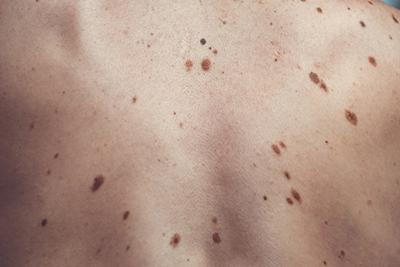
The Link Between Dysplastic Moles and Skin Cancer Risk
Your skin is your largest organ, so you should be aware of any signs of disease, such as cancerous moles. Dr. Clifford Lober helps many patients with their skin concerns, diagnosis, and treatment. Therefore, if you have Dysplastic (“Atypical”) moles in Kissimmee and Ocoee FL, you should make an appointment with him to ensure those moles are safe.
How Do I Recognize Dysplastic (“Atypical”) Moles in Kissimmee and Ocoee FL?
Moles occur anywhere in the body. When you have a dysplastic mole, which is also called an atypical mole, it's usually safe but may have some features reminiscent of a mole that looks like melanoma. That's why it's still best to have these moles checked out to ensure they don't develop into skin cancer. After all, a present mole that has been marked as benign, can eventually become symptomatic. These moles may show problems with a change in texture or pigmentation. You may notice a change in border shape and size.
People most likely to develop atypical moles have several already, such as over 50 of them. If you have a history of melanomas in your family, be extra cautious of any mole that pops up. Some people with health conditions that suppress their immune system may also see more atypical moles developing.
What Happens If the Mole Changes?
If you have a previous atypical mole that was fine but is now showing signs it may be cancerous, make an appointment to see Dr. Lober immediately. He will perform a biopsy to confirm whether the mold has developed into cancer. Your dermatologist can remove cancerous moles by various methods, like freezing. However, if the mole doesn't appear to be cancerous, he may not pursue further treatment. However, he will always recommend you to continue to protect your skin with proper coverage by way of clothing or sunscreen.
Everyone should get an annual skin cancer screening, but you may need more frequent ones if you have several moles, are light-skinned, are a redhead, or have a family history of skin cancer. Remember, even normally healthy skin can change at any time. That's why it's essential to pay attention to moles that resemble melanoma or were previously marked as healthy but develop symptoms over time.
If you are concerned about Dysplastic (“Atypical”) Moles in Kissimmee and Ocoee FL, you need to see a professional ASAP. Dr. Lober is such a professional and can provide the expert analysis and care you need. Call the Kissimmee, FL, office at (407) 846-7166 and the Ocoee, FL office, at (407) 656-9700, FL, for a consultation today.